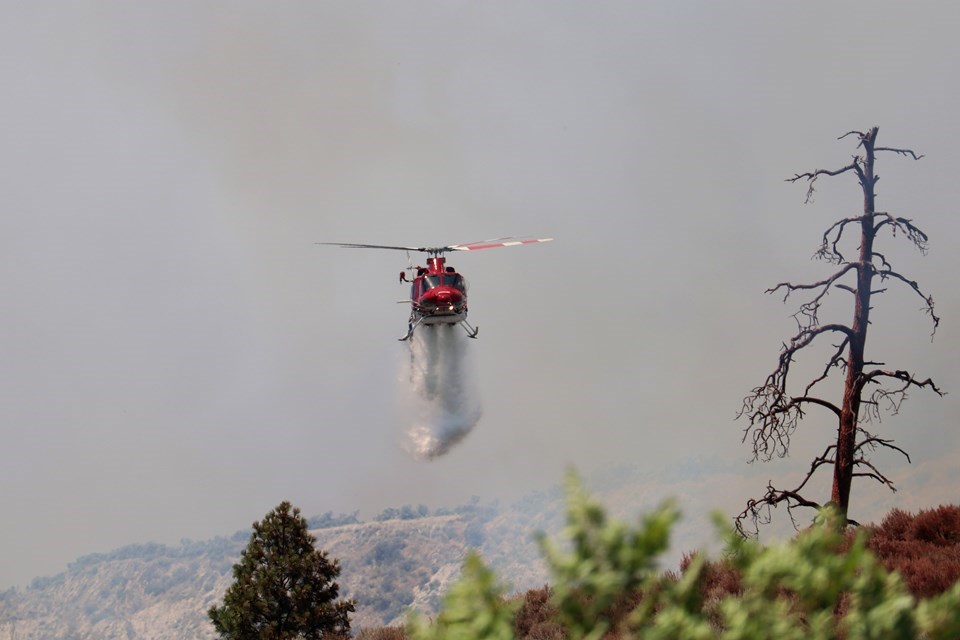When your school is in a city located in the heart of wildfire, flood and landslide country, researching responses to those disasters has more than just an academic benefit.
That's why Thompson Rivers University (TRU), University of Northern B.C. (UNBC) and UBC Okanagan (UBCO) have partnered up to fund research projects focused on the challenges and the responses to extreme weather events brought on by climate change.
"Climate change is bringing such dramatic impacts and they're becoming so regular that even our language is beginning to adapt, and phrases like 'the new normal' are becoming commonplace," says Dr. Will Garrett-Petts, associate vice-president of research and graduate studies at TRU.
"We're so far past worrying whether there's enough science available to say that we're facing the most serious consequences that people on the planet have ever experienced. We are there. The kind of work that we're doing is addressing things in the immediate moment and we think of things like first responders. This, in terms of research, is a variation of first response. But we also have to have a long-term vision for this sort of thing and that's what universities, we hope, are really good at."
Initially, through their Interior Universities Research Coalition (IURC), they will put forward $120,000 to fund three research projects that will benefit natural disaster knowledge and response in Kamloops, Prince George and Kelowna.
"We've put out the call and had a great response," says Garrett-Petts. "The adjudication, we're going to turn around very quickly because we want to see these teams out there not just talking about research but actually doing it."
Garrett-Petts says they've received eight research proposals for a wide range of projects that will explore the physical, social and mental impact of disasters on cities and communities.
Proposals include a project that would look at forest disturbance and the hydrological impact in the Interior, one that would examine landslides in the Interior using drones with LiDAR (light detection and ranging) technology to map the landscape, and one that would explore air quality monitoring and the effect of wildfires on humans and wildlife. There is also a proposal to explore the mental health impact left after a climate change disaster.
"We know that we're very good at first response but the followup, we need to do a lot more with. Organizations like (Thompson Nicola Cariboo) United Way, led by Danalee Baker and her group, have been doing remarkable work going into small communities and helping with that sense of resilience. So the researchers want to take a look at the kind of work and the best practices from around the world and see if we're applying those sorts of things here," explains Garrett-Petts.
The IURC was formed in 2017 as a way for the three universities to bring their resources together with the goal of achieving more. They are currently trying to get the provincial government to fund three research chairs in each city that would focus on proposed areas: earth observation technology and data analysis at UBCO, land-based management and natural resource development at UNBC and resilient communities in disaster management at TRU.
Each university reached out to city and community stakeholders to get their thoughts on what they would like to see researched. Here locally, that meant if the chair position is developed, they would be able to tackle health-related issues that expand beyond natural disasters into other emergencies, like the opioid crisis and homelessness.
Garrett-Petts says they should find out soon if that funding is approved, as the provincial budget is set to be released next week. They are optimistic the chairs will be approved after he says Premier John Horgan publicly noted he would direct the finance minister to find funds for those positions at the B.C. Municipalities meeting.
If those research chairs are approved, it will mean even more funding available for research projects across the Interior for climate change impacts. But the IURC will also be targeting researchers who are capable of getting grant funding from federal or other sources in order to amplify their work.
"These are really large seed funds we've put together," says Garrett-Petts. "And we want to see good things grow from them."



